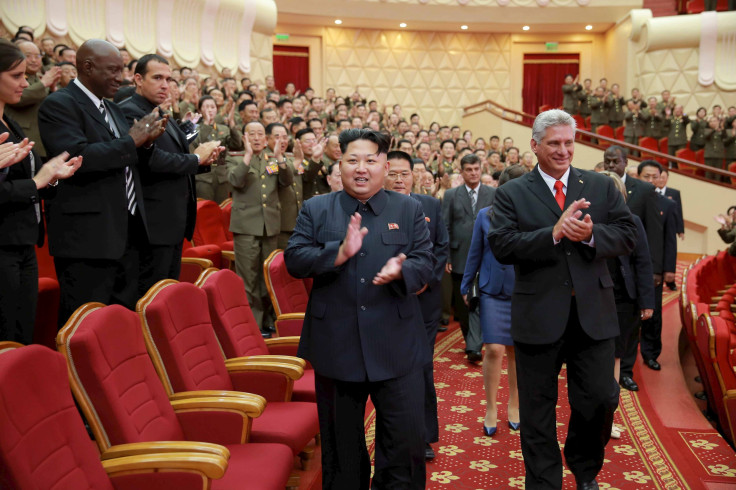In North Korea, Kim Jong Un Caste System Reveals Five Levels Of Social Stratification

North Korea's social classes are divided into five levels that range from a tiny elite caste all the way down to the most-discriminated-against lowest level, according to a new report from NK News. The social structure in North Korea was previously unknown, and gives a rare glimpse into how the secretive nation works.
The basis for the social castes that North Koreans find themselves in dates back to the 1950-1953 Korean War and the 1910-1945 Japanese colonial period. A citizen's current status is determined by paternal ancestry, the positions held during the war and actions taken during the colonial period and war.
The caste system was put into place by the founder of the communist state, Kim Il Sung, grandfather of current leader Kim Jong Un. Kim Il Sung ran the country for 46 years as the first supreme leader of the Democratic People's Republic of Korea.
The names of the castes, from highest on down, are: special, nucleus, basic, complex and hostile. Special is a rare caste to be born into and leads one to a life where they are introduced to other important people and treated with respect. Behind special, nucleus is the most common caste to be born into and is also the largest. Below nucleus is where caste discrimination begins. Those in the basic caste can work their way out, though they are discriminated against. Those in the complex and hostile castes face severe discrimination.
Kim Il Sung was largely responsible for the Korean War. In the summer of 1950, Kim led an invasion of South Korea with the hopes of unifying the peninsula under communist control. U.S. and United Nations troops intervened to save the South from being overrun. The war that ended up costing the lives of perhaps 1 million soldiers and 2 million civilians. The fighting ended with an armistice in 1953, but there is still no peace treaty.
North Korea later elected Kim as their president, and he promoted an ideology of total economic self-reliance for the country. He also focused national priorities on militarization and industrialization. His family has been in power since.
© Copyright IBTimes 2024. All rights reserved.






















